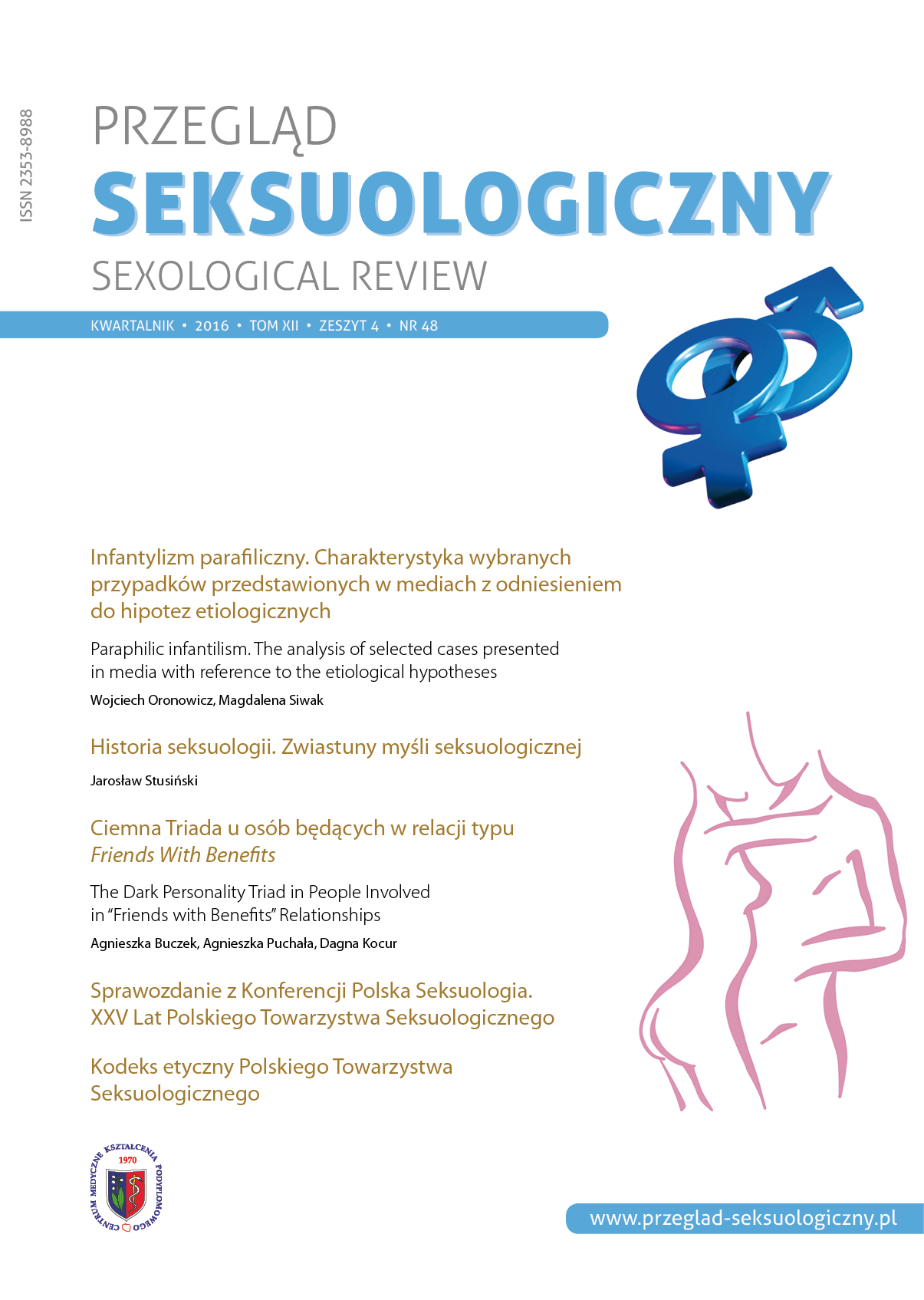The Dark Personality Triad in People Involved in “Friends with Benefits” Relationships
The Dark Personality Triad in People Involved in “Friends with Benefits” Relationships
Author(s): Agnieszka Buczek, Agnieszka Puchała, Dagna KocurSubject(s): Psychology
Published by: Centrum Terapii Michał Lew-Starowicz
Keywords: Sex Friends; Friends with Benefits; Dark Triad; psychopathy; Machiavellianism; narcissism; sexual satisfaction
Summary/Abstract: Aim of the work: The aim of this study was to answer whether the dark triad (Machiavellianism, psychopathy and narcissism) is linked with being involved in an FWB relationship. An additional objective was to analyse a dependency between being in an FWB relationship, the level of satisfaction with the relationship, various aspects of one’s sexual life as well as overall sexual satisfaction. Data and methods: The study employed an extended demographics section, a survey concerning sexuality and the “Dirty Dozen” concise measure of the dark triad (Jonason & Webster, 2010). The research group consisted of 32 participants (14 males and 18 females), who declared being involved in an FWB relationship. The control group was selected with a view to the age and gender of participants in the research group and included individuals who were either married, or had been in a union for at least a year. Results: The subjects in the research group scored higher in Machiavellianism and psychopathy than the participants in the control group. Participants, who were involved in FWB relationships, scored lower than their control group counterparts in terms of relationship satisfaction. No differences were observed in terms of sexual satisfaction. Subjects in the research group, however, fulfilled their sexual fantasies more frequently. No differences were observed between the groups of participants involved in FWB relationships who declared being “close friends”, “not so close friends” and “just acquaintances”. Functioning in the FWB relationships mediated the relations linking Machiavellianism and psychopathy with satisfaction with the relationship. The subjects involved in the FWB relationships who scored higher in Machiavellianism and psychopathy were less satisfied with their relationships. Conclusions: Research into the FWB relationships should be continued. The results of this study could be incorporated into theoretical disciplines such as social and developmental psychology as well as areas of professional practice such as psychotherapy or sexological therapy.
Journal: Przegląd Seksuologiczny
- Issue Year: 12/2016
- Issue No: 4
- Page Range: 37-44
- Page Count: 8
- Language: English

